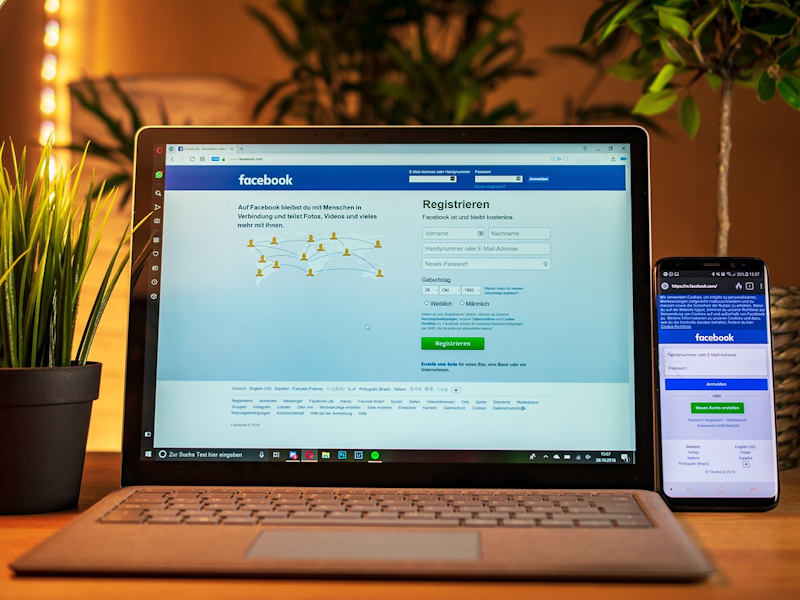How I was tricked and locked out of Facebook after being hacked
Ever had that sinking feeling when you realize something's gone wrong with your social media account? You're definitely not alone. With cybercrime and identity theft on the rise, more and more people are finding themselves locked out of their online accounts, often through no fault of their own.
Marilyn, a resident of Hampton, Virginia, is one such victim who fell prey to a sophisticated scam that left her locked out of her Facebook account. Her story serves as a warning to others, highlighting the increasing complexity and danger of these scams.
"Someone impersonated a Facebook friend of mine and sent a message via FB Messenger asking for a favor," Marilyn explained. "They wanted to use the FB feature to ask a friend to help recover their account. I went to their FB page, and it was a clone (can't see it now). The page had their real-looking profile pic and showed a picture of them out of town helping a family member move."
I asked them to call me so I could know it was them," Marilyn continued. "They video-called me on FB Messenger, and it showed a moving picture of them smiling, but the connection was 'bad' and got 'lost.' I asked them to tell me something about myself, and they sent me the name of my son (who has a different last name)."
"Satisfied, I agreed to help," Marilyn said. "They asked that I send them a recovery code which I did. In a flash, they changed the emails (which one was newly fake) and my password, which essentially locked the real me out."
"I tried to recover my account, but the instructions listed on FB sent me in circles," Marilyn said. "I Googled FB support and called a support number. They installed AnyDesk on my phone and scanned it. Said someone had purchased $17,000 in bitcoins. If I allowed them to send me one dollar they could verify something."
"I realized it was a scam and hung up," Marilyn said. "I've since changed my email address and passwords for important accounts. Also have created a new FB account. However, I was admin for 3 FB groups, and the hacker got into them. Deleted one year of posts and photos from one group. And is still listed as Admin in another group."
"I imagine they stole my old FB account and are still operating incognito on some sites," Marilyn said. "Went to my local police station yesterday. The officer said in order to report something it had to be a tangible loss such as money or property. And I should consider reporting it to IC3.gov."
"How would I find a live person in my area to meet with in person to help me with cyber concerns?" Marilyn asked.
Recovering Your Facebook Account
Marilyn's story highlights how even careful people can be targeted by increasingly clever scams. But don't worry, as recovery is still possible, depending on certain factors.
If you have access to a device you previously used to log into Facebook, you can use it to report that your account has been hacked," says CyberGuy Kurt Knutsson. "Steps to report the hack to Facebook are as follows:
- Once Facebook verifies your identity, it will help you regain access to your account.
- This process may take several days, especially if you need to submit ID verification.
- The hacker may have changed your password, but Facebook can still use your email address or phone number to help you regain access, even if the hacker changed them on your Facebook profile.
"Ensure you still have access to these contact methods and follow the steps below," says CyberGuy Kurt Knutsson. "After regaining access to your Facebook account, you should remove the hacker from any groups that you are an administrator of."
Protecting Yourself from Future Attacks
"Cyber threats constantly evolve, understanding how to defend against common attacks is crucial," says CyberGuy Kurt Knutsson. "Here are essential steps to safeguard your digital presence and prevent unauthorized access to your accounts:
- Change passwords for all your important accounts, including email, banking and social media.
- Use strong, unique passwords for each account by combining uppercase letters, numbers and special characters.
- Consider using a password manager to generate and store complex passwords.
- Enable two-factor authentication (2FA) on all your accounts to add an extra layer of security.
"Also, ensure you protect yourself by enabling two-factor authentication on Facebook and staying vigilant about suspicious requests," says CyberGuy Kurt Knutsson. "If you have ever been in Marilyn's situation, what steps did you take to recover your account and protect yourself from future attacks? Let us know by writing us at Cyberguy.com/Contact For more of my tech tips and security alerts, subscribe to my free CyberGuy Report Newsletter by heading to Cyberguy.com/Newsletter
Ask Kurt a question or let us know what stories you'd like us to cover Follow Kurt on his social channels Answers to the most asked CyberGuy questions: Copyright 2025 CyberGuy.com.
